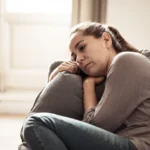Additional Therapeutic Activities
In addition to core therapies, IOPs often include a variety of additional therapeutic activities designed to support recovery. These activities typically include skill-building sessions and psychoeducational activities scheduled during the early afternoon. Topics covered in these sessions range from addiction education and relapse prevention techniques to coping skills, alternative therapies, and practical strategies for managing stress and emotions.
These additional activities provide participants with practical tools and strategies that they can apply in their daily lives, enhancing their overall recovery experience. The comprehensive approach of IOPs, which combines therapy, education, and peer support, ensures that participants receive well-rounded care.
Psychoeducational Sessions
Psychoeducational sessions in an IOP are designed to enhance participants’ understanding of mental health issues and their impact on daily life. These sessions focus on developing coping skills and strategies for relapse prevention, providing participants with valuable knowledge and tools to support their recovery.
Through discussions and interactive activities, participants learn about mental health conditions, treatment options, and ways to manage their symptoms effectively. This educational component is crucial for empowering individuals to make informed decisions about their treatment and recovery journey.
Medication Management
Medication management is a critical aspect of IOPs, ensuring that participants adhere to their prescribed treatment regimens and monitor the effectiveness of their medications. These sessions involve regular reviews of medication plans and adjustments as needed to optimize treatment outcomes.
Effective medication management helps to stabilize mental health symptoms and supports the overall treatment plan, enhancing the likelihood of sustainable recovery. Close monitoring and management of psychiatric medications ensure comprehensive care that addresses both psychological and medical aspects of mental health treatment, including addiction medicine.
Benefits of Intensive Outpatient Programs
Intensive Outpatient Programs offer numerous benefits, including lower costs compared to inpatient treatment options. Key points about the costs include:
- Without insurance, the cost of an IOP can range between $2,000 to $10,000 for a complete program.
- In-network providers typically result in lower costs due to reduced charges.
- Many programs offer payment plans and sliding scale options to make treatment more affordable.
Atlantic Behavioral Health, for example, prioritizes personalized treatment plans tailored to individual needs, ensuring effective recovery in the field of behavioral healthcare. Continuous progress monitoring and adjustments to evidence based treatments further enhance the effectiveness of therapy and medication, including addiction treatment.
These benefits highlight the value of IOPs and iop services in providing high-quality care that is both accessible and effective.
How to Choose the Right IOP
Choosing the right Intensive Outpatient Program (IOP) involves evaluating key factors to ensure it meets your specific mental health needs. Assess whether the program provides the necessary care level and offers specialized programs for issues like anxiety, depression, or substance abuse.
Consider the following when choosing an IOP program:
- Location for convenience and accessibility, as attending sessions regularly is vital for effective treatment.
- Most programs provide a comprehensive treatment plan, including case management.
- Continuous communication with other healthcare providers.
This thorough evaluation process will help you find an IOP that aligns with your needs and supports your recovery journey.
Why Choose Atlantic Behavioral Health for IOP?
Atlantic Behavioral Health is a leading therapy and mental health facility that offers a comprehensive Intensive Outpatient Program designed to help individuals maintain their daily routines while receiving the care they need. Their personalized treatment plans and continuous progress monitoring ensure that each participant receives effective, tailored care.
By choosing Atlantic Behavioral Health, you can benefit from a supportive environment that prioritizes your mental health and well-being. Their dedicated team of professionals works collaboratively to provide therapy, medication management, and additional therapeutic activities, all aimed at promoting sustainable recovery and mental wellness.
Intensive Outpatient Programs offer a flexible and effective treatment option for individuals facing significant mental health challenges. By providing a structured schedule that includes individual therapy, group therapy, psychoeducational sessions, and medication management, IOPs address a wide range of needs and promote lasting recovery. The benefits of IOPs, including lower costs and personalized care, make them an attractive option for many.
Choosing the right IOP, understanding insurance coverage, and knowing the advantages of facilities like Atlantic Behavioral Health can significantly enhance your recovery journey. Embrace the opportunity for healing and growth that an IOP offers, and take the first step towards a healthier, more fulfilling life.
Frequently Asked Questions
What conditions do Intensive Outpatient Programs treat?
Intensive Outpatient Programs effectively treat conditions such as anxiety, depression, and substance abuse, providing enhanced support compared to standard outpatient therapy.
How often do participants attend sessions in an IOP?
Participants in an Intensive Outpatient Program (IOP) usually attend therapy sessions several days a week for a few hours each day, as structured by the specific program. Consistency in attendance is crucial for effective recovery.
Are IOPs covered by insurance?
Intensive Outpatient Programs (IOPs) are generally covered by most insurance plans, often ranging from 50% to 80% in expenses. It’s essential to check your specific plan for details on coverage.
What additional therapeutic activities are included in IOPs?
IOPs typically incorporate skill-building sessions, psychoeducational activities, and recreational or relaxation exercises to enhance therapy. These additional activities are designed to support holistic recovery and improve coping strategies.
Why choose Atlantic Behavioral Health for IOP?
Choosing Atlantic Behavioral Health for IOP ensures you receive personalized treatment, continuous progress monitoring, and a supportive environment, all of which contribute to effective and tailored care.








